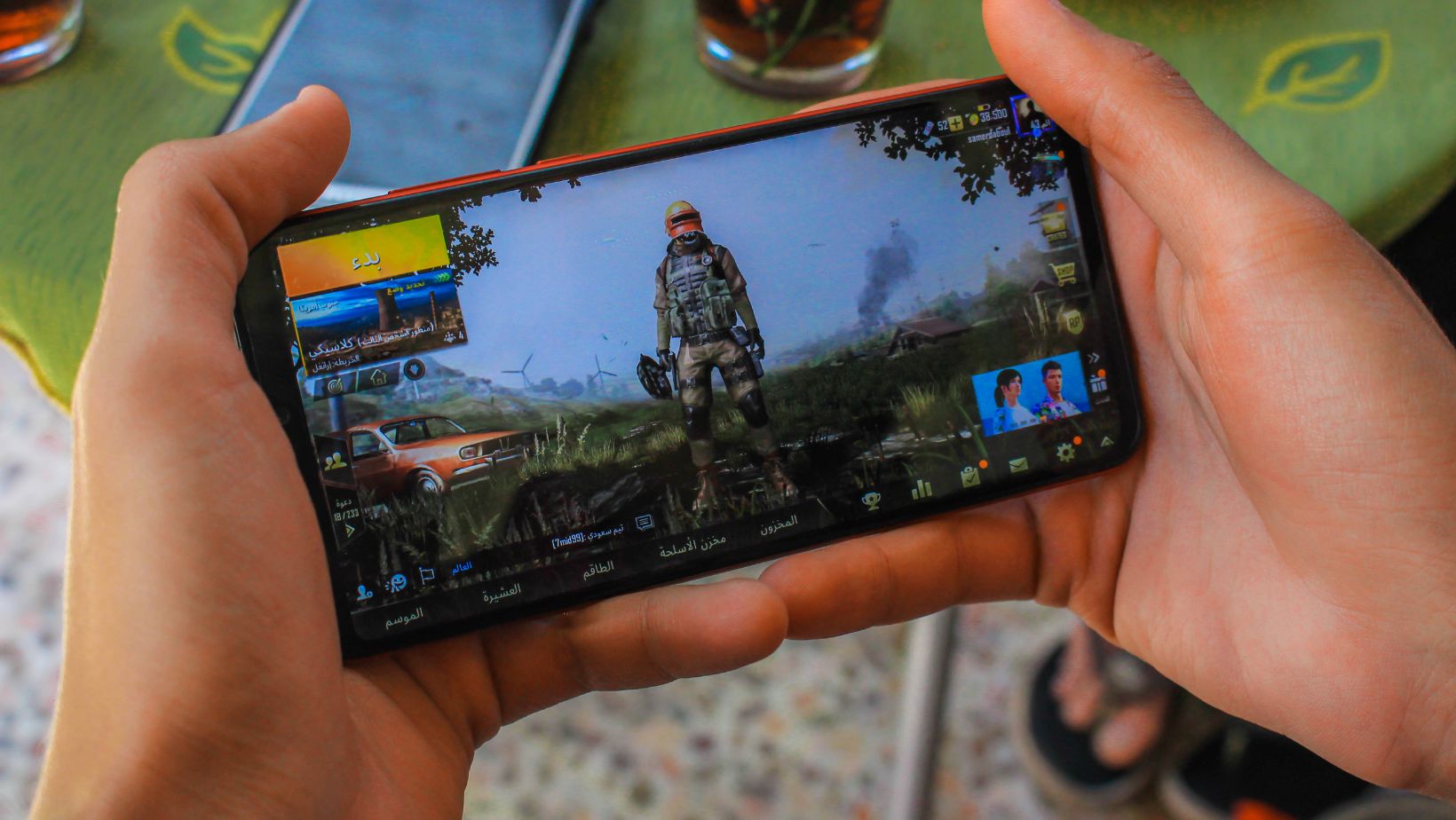Microsoft’s bold move into mobile gaming has caught my attention and it’s shaping up to be a game-changer in the industry. As a long-time observer of the gaming landscape I’ve watched Microsoft strategically position itself to challenge Apple and Google’s dominance in the mobile gaming market.
The tech giant’s recent announcement about launching its own mobile gaming store signals a significant shift in how we’ll access and play games on our smartphones. With Xbox’s massive success and Microsoft’s acquisition of Activision Blizzard this strategic expansion makes perfect sense. I’m particularly intrigued by how this development could transform the mobile gaming ecosystem offering developers and gamers an alternative to the current duopoly.
Key Takeaways
- Microsoft plans to launch a mobile gaming store to compete with Apple’s App Store and Google Play Store, targeting a $100 billion market opportunity
- The store will offer developers a competitive 12% revenue share compared to the standard 30% charged by competitors, along with zero fees for external payment processors
- Launch timing aligns with the EU’s Digital Markets Act in March 2024, which requires Apple to allow third-party app stores on iOS devices
- The platform will feature cross-platform integration with Xbox services, including cloud gaming, cross-save functionality, and access to 400+ games across devices
- Strategic partnerships with game publishers and developers include access to Xbox’s 25+ million subscriber base and comprehensive development tools
- A phased global rollout is planned for 2024-2025, starting in Europe before expanding to other major markets worldwide
Microsoft Talks Mobile Gaming Store Rivaling
 Microsoft’s strategic expansion into mobile gaming targets a $100 billion market opportunity. This move signals a direct challenge to the established dominance of Apple’s App Store and Google Play Store.
Microsoft’s strategic expansion into mobile gaming targets a $100 billion market opportunity. This move signals a direct challenge to the established dominance of Apple’s App Store and Google Play Store.
Breaking Apple and Google’s Duopoly
Microsoft’s mobile gaming store capitalizes on regulatory changes affecting app store policies across major markets. The Digital Markets Act in Europe creates a $50 billion opportunity by requiring Apple to allow third-party app stores on iOS devices starting March 2024. Key initiatives include:
- Offering developers a competitive revenue share model at 12% compared to Apple’s 30%
- Supporting alternative payment systems for in-app purchases
- Providing cross-platform integration with Xbox services
- Implementing streamlined certification processes for game submissions
- Instant access to 400+ cloud-enabled games across devices
- Cross-save functionality between console PC mobile platforms
- Advanced matchmaking systems supporting 25+ million subscribers
- Cloud streaming technology reducing device storage requirements
| Gaming Platform Stats | Current Metrics |
|---|---|
| Xbox Game Pass Users | 25+ million |
| Available Games | 400+ |
| Developer Revenue Share | 12% |
| Target Market Value | $100 billion |
Planned Features of Microsoft’s Mobile Store
Microsoft’s mobile gaming store incorporates advanced features focusing on seamless integration across devices with enhanced developer benefits. These planned capabilities target both gamers and developers to create a competitive ecosystem.
Cross-Platform Gaming Integration
The store emphasizes cross-device compatibility through Xbox Cloud Gaming technology. Players access their game progress across mobile devices tablets computers through cloud saves with automatic syncing. The platform supports cross-play functionality between mobile Xbox PC users enabling unified multiplayer experiences. Integration includes:
- Real-time achievement tracking across platforms
- Unified friend lists from Xbox Live mobile networks
- Synchronized game libraries between devices
- Instant cloud game streaming without downloads
- Cross-platform voice chat communication systems
- 12% revenue share model for developers
- Zero fees for using external payment processors
- Complete ownership of customer relationships data
- Direct access to Xbox’s 25 million subscriber base
- Flexible monetization options including:
- In-app purchases
- Subscription models
- Ad-supported frameworks
- Premium game sales
| Revenue Model Comparison | Microsoft Store | Apple App Store | Google Play |
|---|---|---|---|
| Standard Commission | 12% | 30% | 30% |
| Subscription Fee (Y1) | 12% | 30% | 15% |
| External Payments | Allowed | Limited | Limited |
Regulatory Challenges and Legal Framework

Microsoft’s mobile gaming store launch faces complex regulatory requirements across global markets. The implementation aligns with evolving digital marketplace regulations while addressing antitrust concerns.
Impact of Digital Markets Act
The Digital Markets Act (DMA) creates pivotal opportunities for Microsoft’s mobile gaming store expansion in the European Union. The regulation mandates Apple to permit third-party app stores on iOS devices starting March 2024, enabling Microsoft to access 450 million EU consumers. Key DMA provisions include:
- Mandatory interoperability between platforms
- Restrictions on self-preferencing practices
- Requirements for transparent app ranking systems
- Prohibition of unfair data collection practices
- Protection for business users against platform retaliation
Global Compliance Requirements
Microsoft’s store adapts to diverse regulatory frameworks across international markets:
| Region | Key Regulations | Compliance Requirements |
|---|---|---|
| EU | Digital Markets Act | Third-party stores allowed |
| US | Antitrust Laws | Fair competition practices |
| UK | Digital Markets Unit | Data protection standards |
| Japan | Act on Improving Transparency | Clear fee disclosure |
Legal Considerations
The mobile gaming store incorporates essential legal safeguards:
- Data privacy compliance with GDPR standards
- Consumer protection measures for in-app purchases
- Age verification systems for content access
- Transparent pricing disclosure requirements
- Intellectual property rights protection protocols
- Clear dispute resolution mechanisms
Competition Law Implications
Microsoft’s store launch triggers specific antitrust considerations:
- Market concentration assessments
- Fair competition practices documentation
- Revenue share model justification
- Platform access equality measures
- Cross-platform interoperability standards
- Developer agreement transparency
These legal frameworks shape Microsoft’s mobile gaming store implementation strategy while ensuring compliance with evolving digital marketplace regulations.
Strategic Partnerships and Developer Support
Microsoft’s mobile gaming store establishes key partnerships with game developers publishing houses, creating a robust ecosystem for mobile game distribution. The initiative leverages Microsoft’s extensive network of strategic relationships in the gaming industry.
Benefits for Game Publishers
Publishers receive comprehensive support through Microsoft’s mobile gaming store infrastructure:
- Access to 25 million Xbox Game Pass subscribers for immediate market reach
- Integration with Xbox Cloud Gaming architecture for streamlined deployment
- Analytics tools tracking real-time player engagement metrics
- Unified development tools supporting cross-platform releases
- Marketing support through Xbox promotional channels
- Cloud storage solutions reducing publishing overhead costs
Key publisher advantages in revenue structure:
| Benefit Category | Microsoft Store | Industry Standard |
|---|---|---|
| Revenue Share | 88% to publisher | 70% to publisher |
| Payment Processing | $0 external fees | 2-3% fee |
| Cloud Services | Included | Additional cost |
| Analytics Tools | Free tier included | Subscription-based |
The partnership program includes technical resources:
- Direct access to Xbox development frameworks
- Priority support channels for bug resolution
- Early access to platform updates
- Custom API integrations for unique game features
- Automated quality assurance tools
- Cross-platform testing environments
These publisher benefits create a competitive advantage in mobile game distribution while maintaining high-quality standards across the platform.
Timeline and Launch Strategy
Microsoft’s mobile gaming store launch follows a structured implementation timeline through 2024-2025. The rollout begins in March 2024 with the European market to align with Digital Markets Act implementation.
Phase 1: European Launch (Q1-Q2 2024)
- Initial release in EU markets with 100 curated mobile games
- Integration with Xbox Cloud Gaming services across 5 European countries
- Implementation of EU-compliant payment systems in 27 member states
- Deployment of localized customer support in 24 languages
Phase 2: Global Expansion (Q3-Q4 2024)
- Extension to UK markets with modified regulatory compliance
- Launch in Asian markets including Japan South Korea Singapore
- Release in North American regions with tailored content
- Implementation of region-specific age rating systems
Phase 3: Feature Enhancement (Q1 2025)
- Introduction of cross-platform progression tracking
- Addition of social gaming features across 15 languages
- Integration with mobile esports platforms in 10 regions
- Launch of developer analytics dashboard in 8 languages
| Launch Phase | Timeline | Target Markets | Initial Games |
|---|---|---|---|
| Phase 1 | Q1-Q2 2024 | EU | 100 |
| Phase 2 | Q3-Q4 2024 | Global | 250 |
| Phase 3 | Q1 2025 | Enhanced Features | 400 |
Technical Implementation Strategy
- Server infrastructure deployment in 12 global regions
- Authentication system integration with 5 identity providers
- Payment processing setup with 8 regional partners
- Cloud streaming optimization for 25 mobile device types
- Localized content curation for 20 regions
- Regional pricing models across 15 currencies
- Cultural adaptation of user interface in 24 languages
- Local partnership programs in 18 key markets
Competitive Analysis
Microsoft’s mobile gaming store enters a market dominated by established players with distinct competitive advantages. Here’s a detailed analysis of the current marketplace dynamics and key competitors.
Apple App Store Comparison
Apple’s App Store generates $85.1 billion in annual gaming revenue with a 30% commission structure on app sales and in-app purchases. Key differentiators include:
- Processes 19 billion gaming transactions annually across 1 million gaming apps
- Controls 100% of iOS app distribution through vertical integration
- Maintains strict quality control with 40% app rejection rate
- Offers 3% commission reduction for developers earning under $1 million
- Provides integrated development tools through Metal API & Swift
- Features 900 million active gaming users across iOS devices
Google Play Store Assessment
Google Play Store captures $47.9 billion in gaming revenue annually with flexible monetization options. Notable metrics include:
- Hosts 477,877 gaming apps with 2.5 billion active Android users
- Implements variable commission rates from 15% to 30%
- Allows third-party app stores on Android platform
- Supports multiple payment systems through Play Billing Library
- Delivers automated app testing across 2,000 device configurations
- Reaches users in 190 countries with localized payment options
- Processes 300 billion app installations annually
Each competitor demonstrates unique market strengths in distribution infrastructure content curation security measures. Microsoft’s entry presents opportunities for differentiation through cross-platform integration developer incentives cloud gaming capabilities.
Microsoft’s bold move into mobile gaming marks a pivotal shift in the industry landscape. I’m confident that their competitive revenue model and cross-platform integration will create new opportunities for both developers and gamers.
The timing couldn’t be better with the Digital Markets Act opening doors in Europe. I believe Microsoft’s strategic approach combining Xbox’s established ecosystem with innovative mobile features puts them in a strong position to challenge Apple and Google’s dominance.
The success of this venture will largely depend on Microsoft’s ability to execute their implementation timeline and maintain strong partnerships with developers. From what I’ve seen their comprehensive strategy and robust infrastructure make them a formidable contender in the mobile gaming market.

